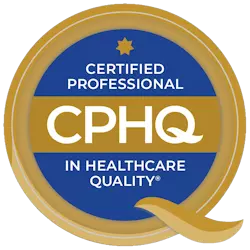mobility, and independence. Prosthetic joint infection (PJI) remains one of the most serious complications of prosthetic joint implantation.The joint replacements most commonly performed in the United States are knee replacements (TKA), followed by hip replacements (THA), and both TKA and THA numbers in the United States have increased over time (and are projected to continue to do so). Although the risk of PJI is highest in the early postoperative period, the risk persists for the lifetime of the joint, with a significant proportion of infections manifested after 1 year. The incidence of hip and knee PJI in the United States was 2.1% and 2.3%, respectively, in 2017.
Clinical Presentation:
The most common symptom is joint pain. In some cases, local signs of infection (e.g., erythema, swelling, and warmth of the joint) may be present. Fever is often absent. With chronic infection, there may be pain alone, sometimes in conjunction with prosthetic loosening and a draining sinus tract. Although the presence of a draining sinus is pathognomonic for PJI, many cases are not associated with draining sinuses.
Diagnosis:
While diagnosis of PJI is sometimes straightforward, it can oftentimes be quite challenging. Diagnostic criteria have been published by the Infectious Diseases Society of America (2013) the European Bone and Joint Infection Society (EBJIS) (2021) and by Parvizi et al (2018) to help the clinician establish a diagnosis.
Management:
PJI treatment is complicated and costly and should be provided, if possible, in specialized centers that perform a large volume of prosthetic joint surgeries with dedicated collaborative teams (i.e. orthopedic surgeons and infectious disease specialists working in a coordinated manner), which is similar to the model of care provided in cancer centers. The aim of treatment is to ensure functional, pain-free joints and, ideally, to cure infection. Antibiotic therapy alone, without surgical intervention, fails in most cases; meticulous surgical débridement is important. Prolonged antimicrobial therapy, guided by the results of antimicrobial susceptibility test- ing, is used to treat PJI. The preferred antibiotics, routes of administration, and durations of therapy are incompletely defined. Of note, however, the OVIVA trial (2019) suggested that oral antibiotic therapy was not inferior to intravenous therapy for treatment of complex orthopedic infections, a finding also found by others including a Cochrane Review from 2009 (for treatment of chronic osteomyelitis)
Conclusion:
Prosthetic Joint infections are an unfortunate, and oftentimes devastating complication of Joint replacement, and continue to occur to patients worldwide. Diagnosis is not always straightforward, and arriving at the correct diagnosis in a timely manner is crucial for proper management of the patient. A Prosthetic Joint Infection Expert Witness may be helpful in the evaluation of the care of a patient with suspected or confirmed Prosthetic Joint Infection.
REFERENCES:
R. Patel, MD. Periprosthetic Joint Infection N Engl J Med 2023;388:251-62
Li et al. Oral versus Intravenous Antibiotics for Bone and Joint Infection NEJM 380;5: 425-436
Parvizi J, Tan TL, Goswami K, et al. The 2018 definition of periprosthetic hip and knee infection: an evidence-based and validated criteria. J Arthroplasty 2018; 33(5):1309-1314.e2.
McNally M, Sousa R, Wouthuyzen- Bakker M, et al. The EBJIS definition of periprosthetic joint infection. Bone Joint J 2021;103-B:18-25.
Osmon et. al. Diagnosis and Management of Prosthetic Joint Infection: Clinical Practice Guidelines by the Infectious Diseases Society of America. Clinical Infectious Diseases 2013;56(1):e1-25
Conterno LO, da Silva Filho CR. Antibiotics for treating chronic osteomyelitis in adults. Cochrane Database of Systematic Reviews 2009, Issue 3. Art. No.: CD004439. DOI: 10.1002/14651858.CD004439.pub2.



